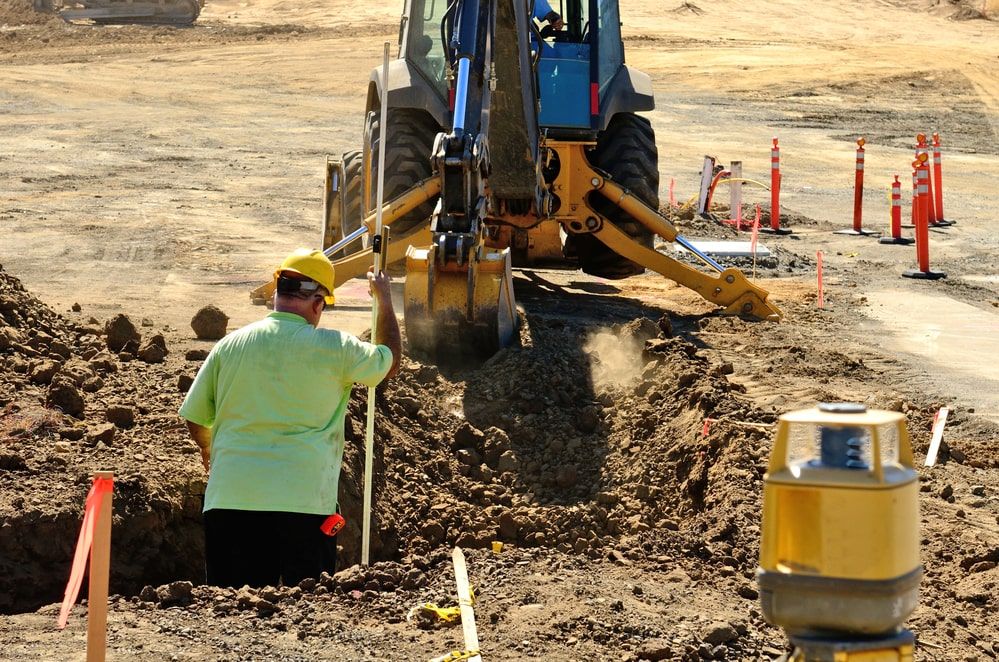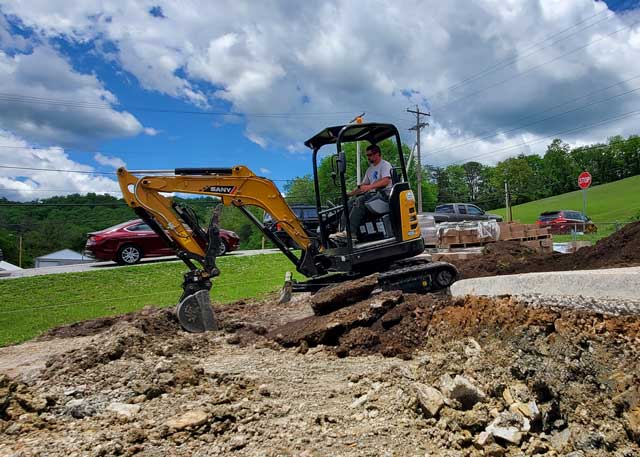Dump Truck Companies in Ohio - Trusted Dump Truck Providers Throughout Ohio
Dump Truck Companies in Ohio - Trusted Dump Truck Providers Throughout Ohio
Blog Article
Comprehensive Excavation Strategies: Understanding the Fundamentals for Success
In the realm of construction and civil design, the relevance of effective excavation approaches can not be overemphasized. The cautious planning, exact implementation, and meticulous interest to detail required in excavation tasks demand a comprehensive approach that encompasses numerous fundamental elements. From first soil analysis to the execution of precaution and routine development surveillance, grasping these core aspects is important for attaining success in any kind of excavation venture. The real mastery lies not just in understanding these fundamentals however in effortlessly integrating them to navigate the complexities of excavation tasks with finesse.
Recognizing Excavation Job Planning

The first phase of any kind of excavation task is the preparation phase, where crucial decisions are made that can significantly impact the result of the job. Recognizing the job budget, extent, and timeline restraints is essential for producing an extensive excavation plan that ensures the task's success.
One secret facet of excavation project planning is the growth of a comprehensive timeline that describes the sequence of target dates, turning points, and tasks. By very carefully thinking about all these factors during the planning stage, excavation tasks can be carried out effectively and effectively, leading to successful results - excavating ohio.
Soil Analysis and Site Examination
Carrying out thorough soil evaluation and site assessment is an essential action in the prep work phase of any excavation project. Soil analysis includes identifying the make-up, framework, and residential properties of the soil at the excavation site. This information is vital for recognizing the dirt's bearing ability, moisture web content, and capacity for erosion, which are crucial variables in figuring out the excavation methods and devices needed for the job.
Website analysis exceeds dirt analysis and includes a broader analysis of the overall site conditions. This examination includes identifying any type of potential hazards, such as below ground utilities, environmental problems, or unstable surface, that could affect the excavation procedure. By completely assessing the site, project supervisors can develop effective excavation strategies that focus on safety, performance, and environmental protection.
Utilizing innovative technologies like ground-penetrating radar, dirt tasting, and drone studies can enhance the accuracy and effectiveness of dirt evaluation and site assessment. Investing time and resources in these preliminary actions can eventually conserve time and stop expensive hold-ups or problems during the excavation process.
Devices Selection and Usage
Reliable excavation tasks count greatly on critical tools selection and usage to guarantee ideal performance and performance. Picking the right tools for the work is essential in making the most of efficiency and decreasing downtime. Aspects such as the kind of soil, deepness of excavation, and job range play a significant function in figuring out one of the most ideal devices for the task handy.

Along with picking the ideal tools, appropriate use is crucial to task success. Operators needs to be educated to find take care of the equipment securely and successfully - lancaster trenching. Routine maintenance checks and prompt repair work aid prevent breakdowns and guarantee regular efficiency throughout the task
Precaution and Rules Conformity
In the world of excavation jobs, prioritizing precaution and conformity with laws is extremely important to guaranteeing a legitimately sound and safe operational environment. Precaution encompass a range of techniques, consisting of performing detailed site evaluations, executing correct signs and barriers, and providing ample security training for all personnel associated with the excavation process. Adherence to guidelines, such as OSHA demands in the United States, makes sure that the excavation job fulfills the required standards to protect workers, bystanders, and the surrounding setting.

Surveillance Development and Adjusting Strategies
How can project managers successfully track the innovation of excavation tasks and adapt their methods appropriately to maximize outcomes? Tracking progress is essential for ensuring that excavation projects stay on track and fulfill due dates. Job managers can make use of different devices and strategies to track progress, such as daily report card, normal website assessments, and advanced surveillance innovations like drones and general practitioners tracking systems. By continuously monitoring the task's innovation, managers can determine any potential hold-ups or concerns beforehand and take positive procedures to address them.

Final Thought
Finally, grasping the fundamentals of detailed excavation techniques is important for the success of any task. By recognizing task preparation, assessing soil and site problems, selecting proper equipment, complying with safety guidelines, and keeping an eye on development, task supervisors can ensure a smooth and reliable excavation procedure. Applying these methods will result in successful outcomes and minimize possible risks or obstacles throughout the excavation project.
The first stage of any type of excavation job is the preparation phase, where crucial decisions are made that can dramatically influence the outcome of the project. Understanding the project range, timeline, and spending plan restrictions is essential for creating a detailed excavation strategy that makes sure the project's success.
How can forecast supervisors properly track the advancement of excavation jobs and adapt their methods accordingly to maximize end results? By carefully keeping an eye on progress and being prepared to adapt approaches, project managers can enhance the overall success of excavation projects.
By understanding job planning, evaluating soil and site conditions, selecting appropriate devices, abiding with safety guidelines, and keeping track of progress, project managers can guarantee a smooth and effective excavation procedure.
Report this page